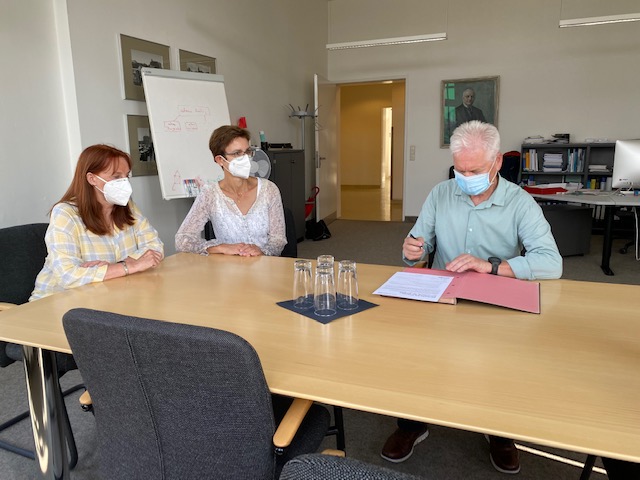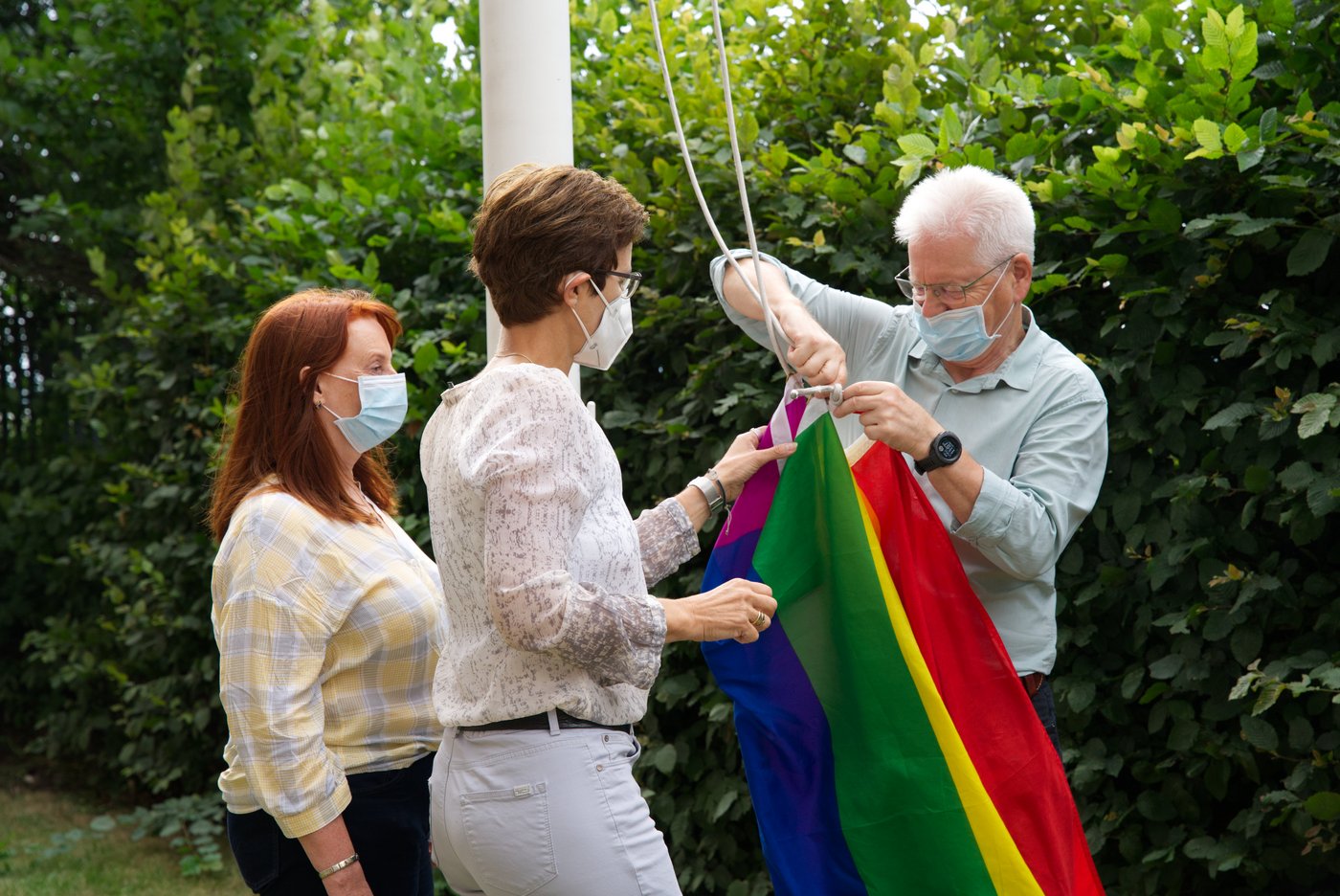Commitment to diversity
BNITM raises rainbow flags and signs Diversity Charter
By signing, BNITM commits itself to cultivating a working environment that is free of prejudice. It sees diversity as an enrichment and an opportunity and strives to value all institute members equally in the spirit of the Diversity Charter - regardless of gender, nationality, ethnic origin, religion or belief, disability, age, gender identity and sexual orientation.
By signing, BNITM commits itself to cultivating a working environment that is free of prejudice. It sees diversity as an enrichment and an opportunity and strives to value all institute members equally in the spirit of the Diversity Charter - regardless of gender, nationality, ethnic origin, religion or belief, disability, age, gender identity and sexual orientation.

In order to implement the Charter, the BNITM will, in accordance with the Charter of Diversity,
1. cultivate an organisational culture characterised by mutual respect and appreciation for all. It creates the conditions for superiors and employees to recognise, share and live these values. Supervisors have a special obligation in this regard.
2. review HR processes and ensure that they reflect the diverse skills and talents of all employees and our performance aspirations.
3. recognise the diversity of society within and outside the organisation, value the potential it contains and use it profitably for the Institute.
4. make social diversity a topic of internal and external dialogue.
5. report publicly on activities and progress in promoting diversity and appreciation on an annual basis.
6. inform employees about the added value of diversity and involve them in the implementation of the charter.
Minister for Equalities, Katharina Fegebank: "The Bernhard Nocht Institute for Tropical Medicine is also flying the flag - the rainbow flag is visible from afar at the harbour - Hamburg's gateway to the world. A strong, unmistakable sign for diversity, tolerance and solidarity with the LGBTIQ* community. I am very pleased about this, especially because signing the Diversity Charter makes it clear that the Bernhard Nocht Institute also consciously promotes these values and publicly stands up for a diverse, multifaceted, colourful workforce and urban society."

The Chairman of the BNITM Board, Prof. Egbert Tannich: "Teamwork is the basis of our success. Diverse teams are more creative, flexible and innovative. We see this time and again, especially in international cooperation projects, but also at the Institute in Hamburg. People from almost 30 countries work here, almost 16 per cent of the staff have foreign roots. But we also have a special responsibility as a globally networked research institution with regard to gender and sexual diversity."
The rainbow flag became a well-known symbol against discrimination of lesbian, gay, bisexual, transsexual, transgender and intersex people worldwide after the controversial police raid of 1969 on New York's Christopher Street. Diversity stands for an appreciative and conscious approach to social diversity - e.g. in educational institutions, companies, public authorities and civil society organisations
Background information
The Bernhard Nocht Institute for Tropical Medicine
The Bernhard Nocht Institute for Tropical Medicine (BNITM) is Germany's largest institution for research, care and teaching in the field of tropical and emerging infectious diseases. Current research focuses on malaria, hemorrhagic fever viruses, immunology, epidemiology and clinic of tropical infections as well as mechanisms of virus transmission by mosquitoes. For handling highly pathogenic viruses and infected insects, the institute has laboratories of the highest biological safety level (BSL4) and a safety insectarium (BSL3). BNITM includes the national reference center for the detection of all tropical infectious agents and the WHO collaborating center for arboviruses and hemorrhagic fever viruses. Together with the Ghanaian Ministry of Health and the University of Kumasi, it operates a modern research and training center in the West African rainforest, which is also available to external working groups.
.
Contact person
Dr Eleonora Schoenherr
Public Relations
Phone : +49 40 285380-269
Email : presse@bnitm.de
Julia Rauner
Public Relations
Phone : +49 40 285380-264
Email : presse@bnitm.de






